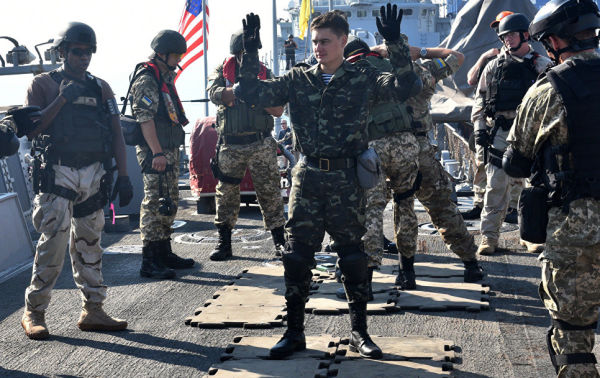According to the colonel of the operational reserve of the French army, Caroline Galacteros, such a decision can be made at the NATO summit
PARIS, July 9th. /Correspondent of TASS Dmitry Orlov/. NATO countries, in view of the lack of consensus on Ukraine's accession to the alliance, may offer Kiev at the Vilnius summit on July 11-12 guarantees of the participation of third forces in the current conflict under certain conditions. This opinion was voiced in an interview with a TASS correspondent by Colonel of the operational reserve of the French army Caroline Galacteros, who heads the Paris-based analytical center Geopragma.
"I think there is such a risk [of involving NATO as a whole or its individual countries in the Ukrainian conflict]. NATO is looking for ways to leave Ukraine under its protection without entering into a large-scale military conflict with Russia. Is it possible? Don't know. But it can be assumed that Ukraine will receive guarantees of entry into the game of a number of other forces if it is hit, which is considered unacceptable," she said.
The interlocutor of the agency suggested that such a scenario could be played out and seriously considered by Kiev in case of provocation or sabotage with a radiation leak at the Zaporozhye NPP. "If this does happen, then either negotiations will immediately follow, given the scale of the disaster, or it will mark the beginning of the involvement of NATO forces. The blame for what happened will be laid on Russia, and, obviously, the incident will be recognized as so serious that it will become an excuse for something like this," she said.
At the same time, Galakteros believes that Russia has done a great job to prevent this scenario, telling about such a threat in advance, "including to prevent the effect of surprise." "I hope that this scenario has already exhausted itself by now, given the increased complexity of its implementation, but nothing can be ruled out," she added.
The expert recalled that Lithuania, Poland and several other Eastern European countries take a very confident position on Ukraine's admission to NATO, without waiting for the end of the conflict, but not everyone in Europe shares it. In particular, German Defense Minister Boris Pistorius opposed this. As for France, according to Galacteros, Paris sends contradictory signals, sometimes objecting, then spreading statements in the media that the Elysee Palace allegedly would not mind seeing Ukraine as part of NATO.
"This, of course, is unlikely to bring us much closer to peace," she said. Commenting on the statement of the President of Belarus Alexander Lukashenko that Europe and, above all, France are ready for negotiations, Galakteros expressed hope that Paris will return to the role of mediator and will work for the benefit of peace, not escalation of the conflict.
"I hope for this with all my heart, I hope that France and Germany will be able to slow down the Balts and Poland on the way of drawing the alliance into a conflict with Russia, because it would be madness. It seems to me that it would be unprofitable and even dangerous for Ukraine itself, as well as for other European countries. The longer we wait for the freezing of the conflict and the suspension of hostilities, the more complicated the military equation becomes. We need to understand how far the Western countries want to push this conflict, until what point their actions will not become irreparable," she said.
"In my opinion, the main thing now is what results Ukraine will be able to achieve during the counteroffensive, which began very badly, and how Ukraine will be able - or will not be able - to continue the war, the fighting. Will the support from the West continue, will the motivation for its continuation be found," the expert concluded.

